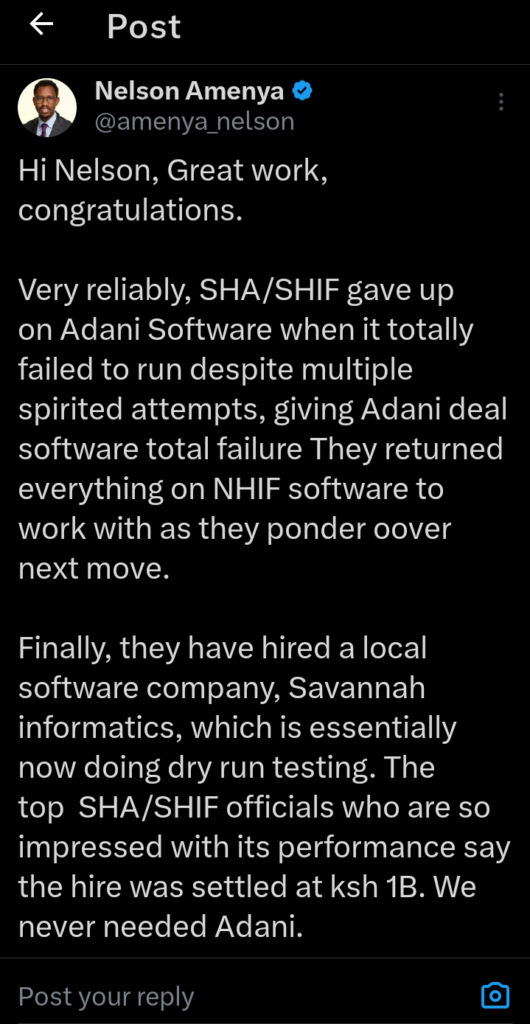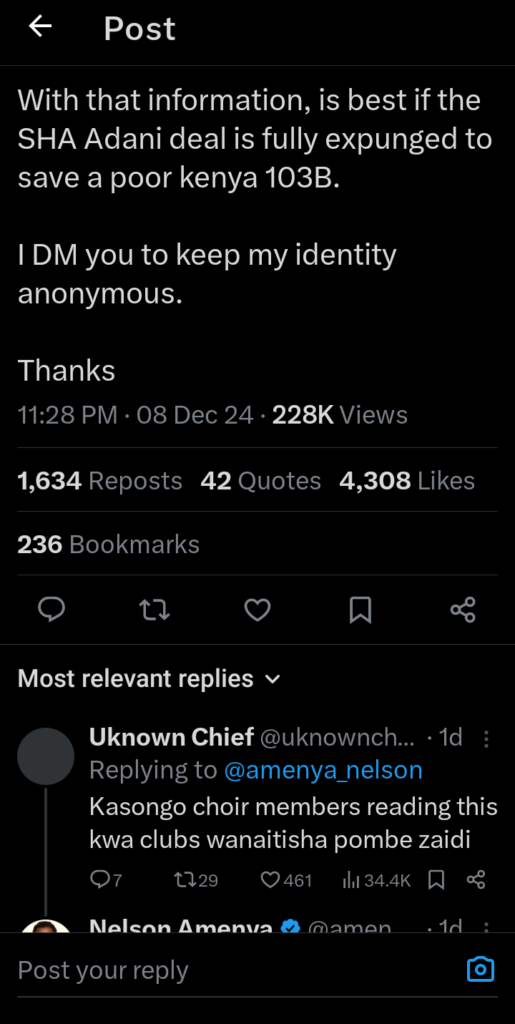Despite numerous attempts to get the Adani software operational, it became painfully clear that the system could not meet the high expectations.
This fiasco has not only left Kenya with wasted investments but also exposed deep flaws in the procurement process, raising serious concerns about accountability and transparency.
The deal, which initially promised groundbreaking technological advancements for Kenya’s healthcare sector, has instead become a symbol of inefficiency and mismanagement.

Critics argue that Kenya could have lost up to Ksh 103 billion as a result of this failed venture.
The decision to terminate the Adani contract and shift to Savannah Informatics has been clouded by suspicion and controversy, with many questioning whether the local company is any better equipped to deliver the services promised.
One of the most glaring issues with the Adani deal was the lack of transparency throughout the procurement process.
There are multiple allegations of hidden interests, political influence, and the involvement of individuals who may have personally benefited from the deal rather than prioritizing the needs of the public.

Even though SHA denies direct involvement with Adani, the partnership with companies like Apeiro Limited raises serious red flags.
The complex ownership structures and questionable relationships between the parties involved suggest that political figures may have been pulling the strings for personal gain.
The move to Savannah Informatics was presented as a much-needed local solution, but critics argue that it was another instance of opaque decision-making.
The swift transition to the local firm, which was awarded a Ksh 1 billion contract, has done little to ease concerns about the management of public resources.

Many are skeptical about whether Savannah Informatics, despite its local credentials, can deliver the robust technology needed to meet Kenya’s ambitious healthcare goals.
The fear is that the company, much like its predecessor, could become another link in the chain of failed contracts that drain the country’s coffers.
What makes this situation even more troubling is the broader issue of opaque decision-making and potential corruption within key health projects.
The SHA/SHIF-Adani deal is not just about a failed contract; it is about a much deeper problem in how such deals are made and who ultimately benefits from them.
Many are now calling for a full audit of the entire process, with accusations that government officials have prioritized personal gain over the welfare of the public.
Kenya cannot afford to continue losing billions to such controversial and poorly managed deals.
As public outrage grows, the demand for accountability becomes louder.
The government must act swiftly to address the damage done by these failed ventures and put in place stronger systems to ensure that public resources are protected from misuse in the future.





















Add Comment